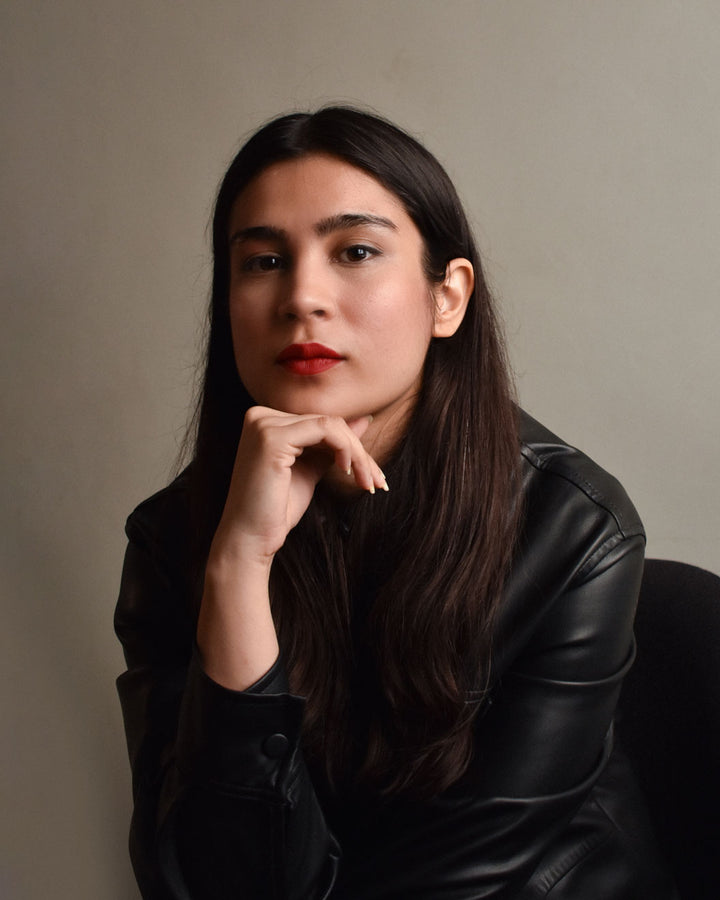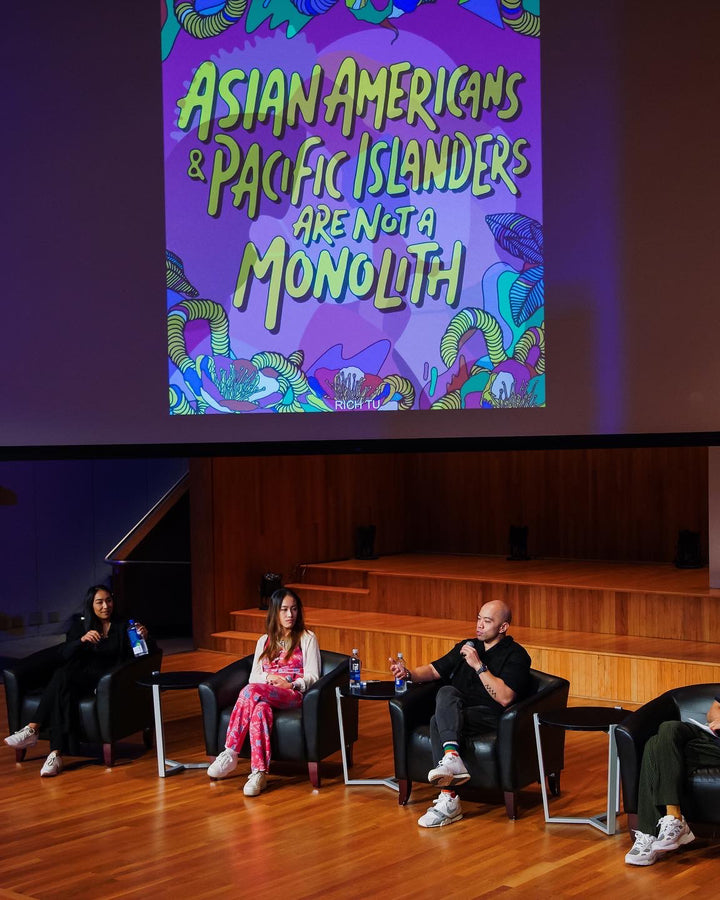Support Series — Angela Wong Carbone

Angela Wong Carbone
Meet Angela (she/her)
—
Actor, writer, and designer based in New York, whose work spotlights underrepresented voices. She took some time to share with us her work and what Support means to her.

As a BIPOC creative, what does “support” mean to you?
Support means making room for the narratives that aren't prevailing in the cultural imagination. It occurs when the privileged share their power with those who don't yet have a voice, without expecting something in return. It also means cheering on adjacent BIPOC creatives and remaining constructive about what they could have done better instead of 'canceling' them when they don't meet the needs of all marginalized stories.

Who has supported you and why was it meaningful?
I've received the most support from other BIPOC creatives whose careers have progressed farther than mine. When someone who has made it holds out that hand to you, it means their universe and their community's universe gets a little wider, that there's added longevity to their cause. There's a huge initiative for companies too, like AT&T who connected me with Lena Waithe and Rishi Rajani and ultimately produced a film I wrote, to invest in BIPOC talent and that support has been invaluable to me.

What is a big challenge being a BIPOC creative in your industry?
The challenge is: The catch 22 is getting people to take the 'risk' on you — be it your first acting job or a first time investing in a story about BIPOC narratives. There are lots of unspoken rules about what is required for the project to be successful. “Ethnic enough”, “Diverse enough”, “Authentic enough” (and their inverses of “Too ethnic” “Too Niche”) are common gatekeeping excuses that non-BIPOC people use to withhold that greenlight. As an actor, having Asian features is oftentimes not synonymous with complexity for characters—it is only recently that Asian folks have been considered as romantic leads or individuals with a rich inner narrative possible of leading a show. There are few opportunities to challenge the conventions that cripple us.





Any words of advice or encouragement to BIPOC creatives just starting out?
Asking for help is key. There are people out there, despite the handicaps, who will help you as best as they can. All you have to do is gain the courage to ask for a favor. Tell yourself your work is important, even if you've been made to feel it is not. Keep working on your craft and your projects even after people say no. There will be someone who says yes. And find a cluster of people whose voices you trust to give helpful advice.
What is your cultural heritage and how has it influenced your work?
So much of my work centers around telling and highlighting the stories of my family, specifically a group of immigrants who came to the United States and sought to forge a better future for themselves. As a mixed person, growing up on Long Island was alienating. I was neither white enough nor Asian enough to be accepted by either side. My work centers around unearthing these experiences — as the child of an immigrant and a citizen of a cultural no man’s land.


Why is BIPOC representation meaningful to you?
It means that one day, through the work of representation, we will be in a world where we are not waking up with the experience of being identified by the features on our face, but rather, we will wake up and be identified as we see ourselves in the mirror; as human.

Why is DEI (Diversity, Equity, and Inclusion) important to you and your industry?
It is important for us to re-level the playing fields. The world does not exist in the way it is currently represented on screen. DEI means reformatting our media to validate the people and communities who don't yet feel heard or seen. We must be the agents of our own stories in order to feel that we truly exist instead of existing as furniture, the backdrop of the main character.

Why are telling BIPOC stories important to you?
Only we will push the boundaries and no one can tell those stories better. The brave are few; near-impossible odds exist in getting a BIPOC story to screen. We have the opportunity, if we suspend our disbelief, to change the only landscape we've ever known. It might take a certain level of insanity to continue to knock on (or break down with a battering ram) the door of opportunity in the entertainment industry, but when we are successful, we will be expanding the universe of opportunity for our peers.



